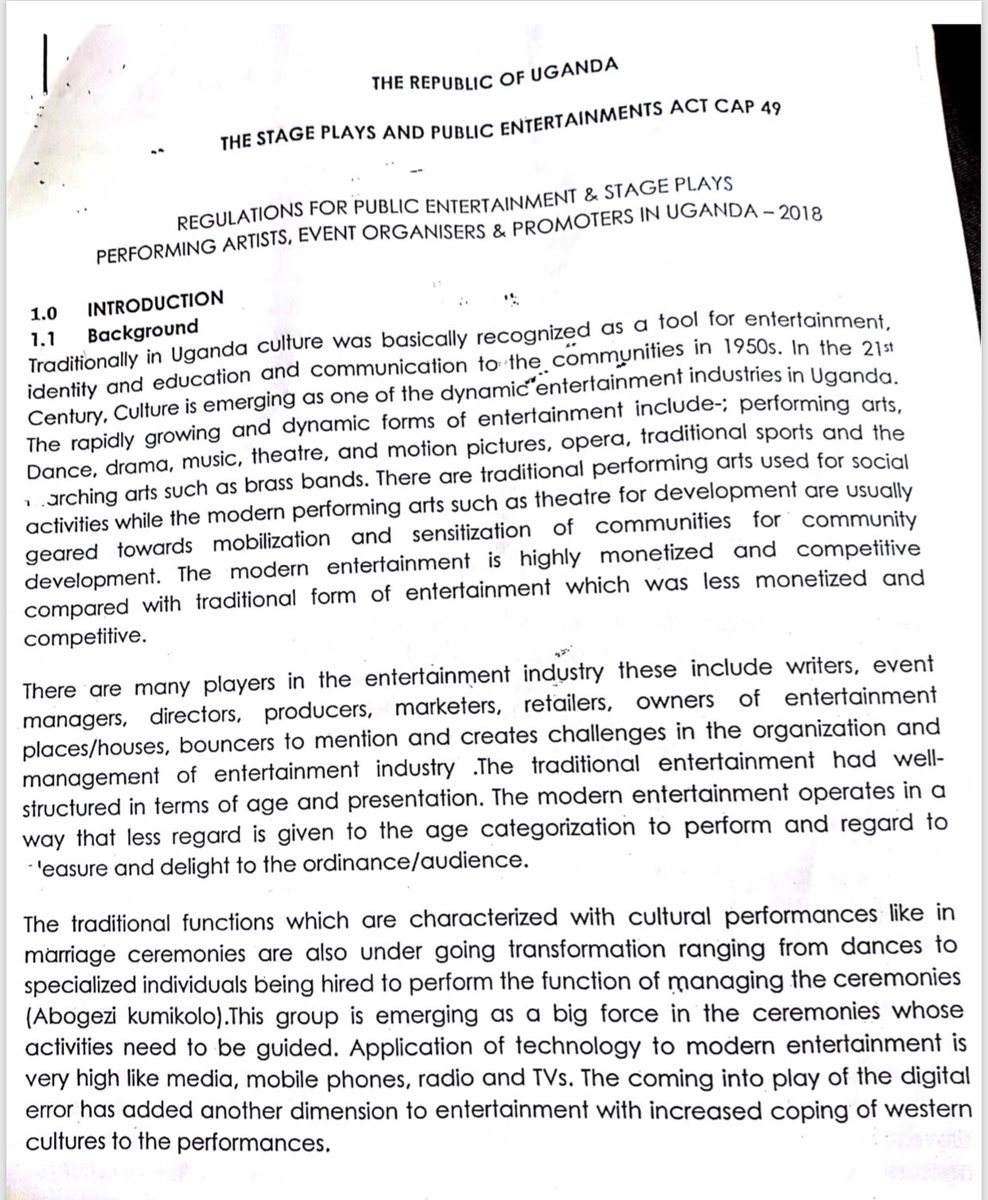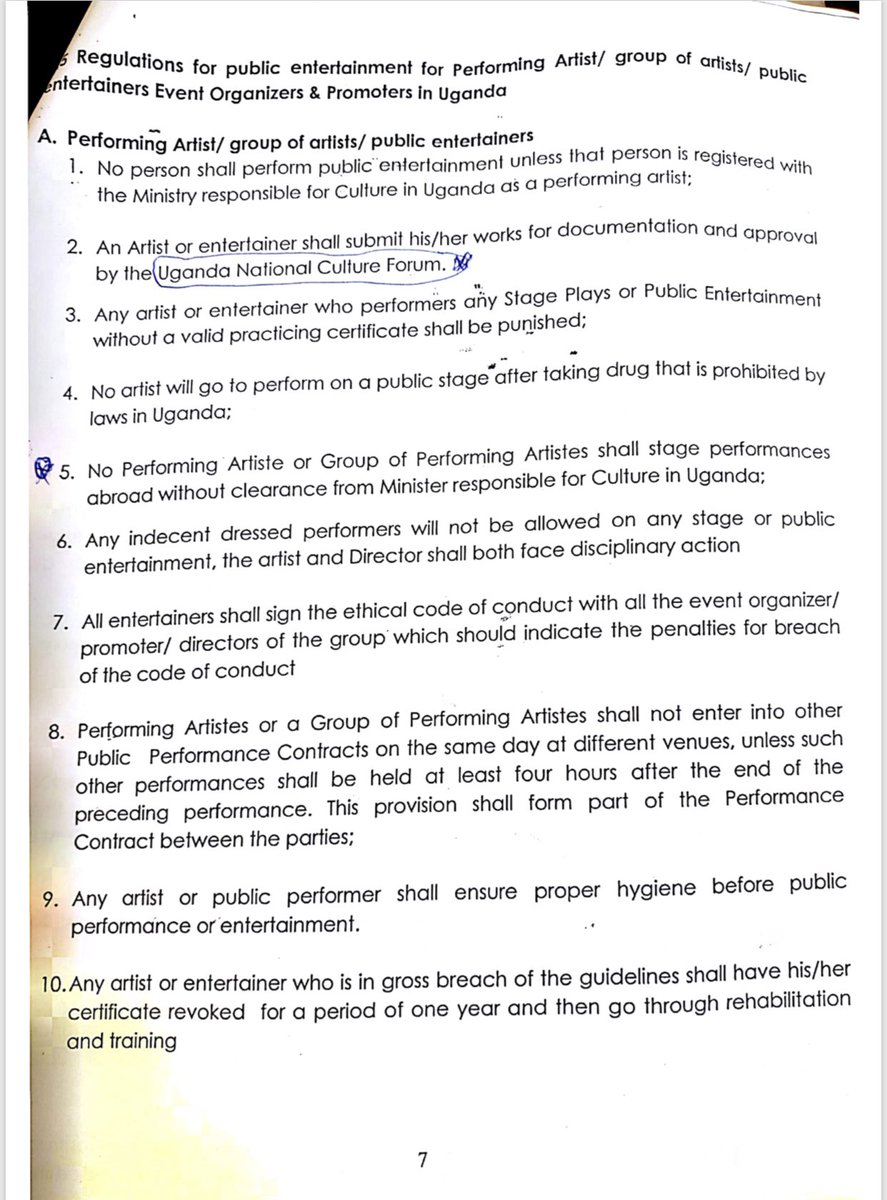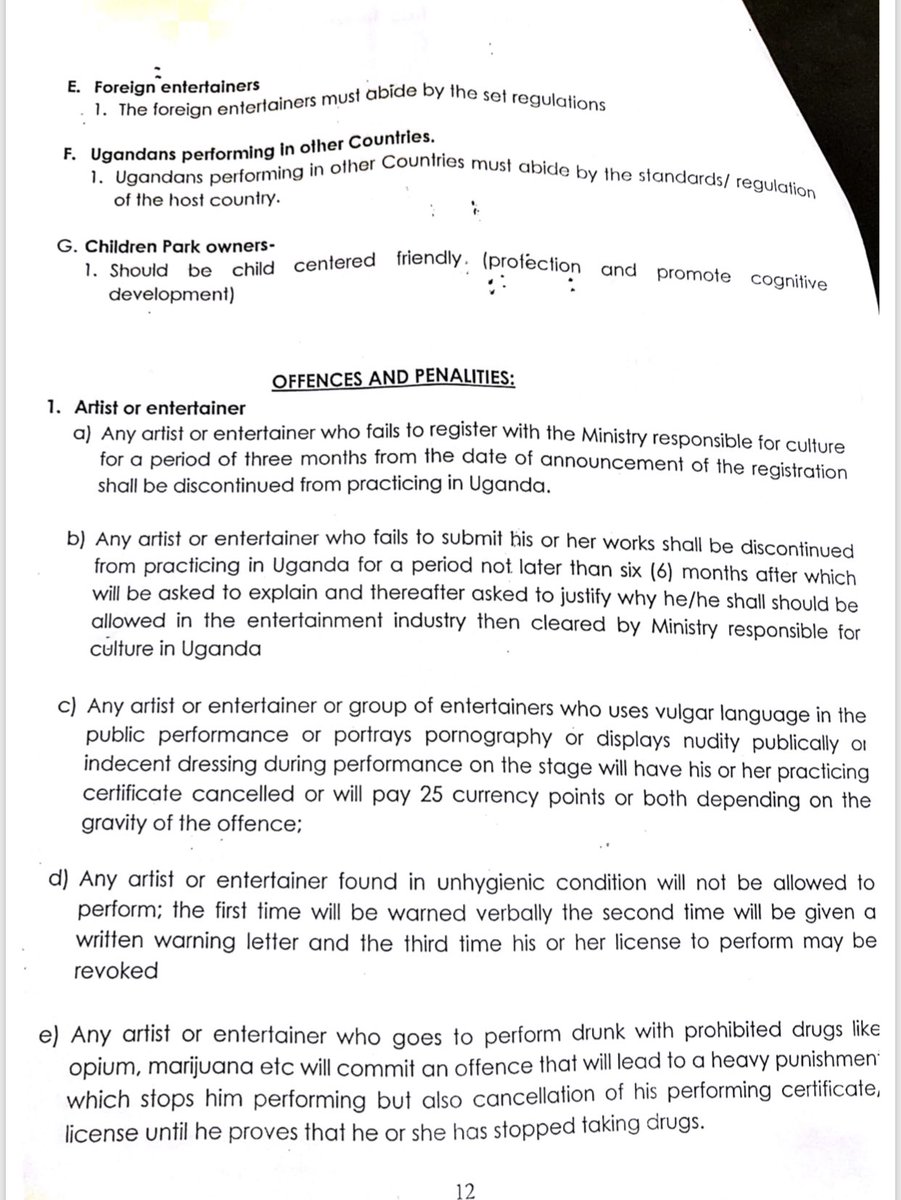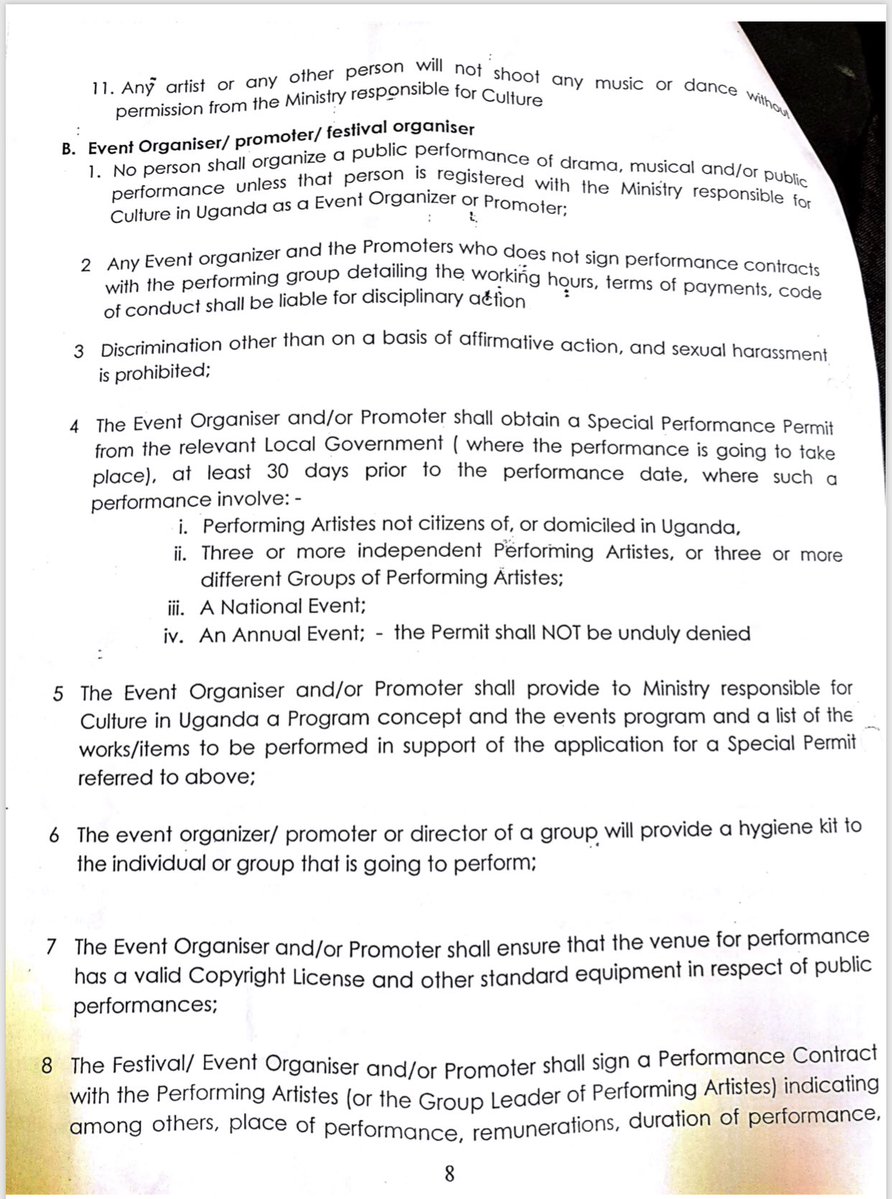The old euphemism – ‘artistic license’ – refers to an artist’s right to deviate from standards to achieve a desired creative effect. This is not the kind of licensing proposed in the recently leaked draft of Uganda’s ‘Stage Plays and Public Entertainment Act Cap 49’.
Let me first back up and explain where I’m coming from. I’m a studio baby, Canadian-British, raised by a diverse ‘village’ of artists. My father is a guitarist/composer. There’s a music studio in our home. I grew up running around at concerts with other studio babies.
I attended arts school and earned my first paycheck recording children’s parts in radio commercials. At University, I booked shows where I worked as a bartender. In Uganda, I managed a studio and then became a PR consultant for entertainers. I’ve spent time in this business. I love it.
For the past couple of days, the bill on ‘Regulations For Public Entertainment & Stage Plays, Performing Artists, Event Organisers & Promoters in Uganda – 2018’ has been circulating around social media. The story of how it was leaked and by whom is still, so far, unknown.
Just a few scanned and/or photographed pages summarize the proposed offences, like: artists failing to register or submit their works ‘for documentation and approval’, and using vulgar language or being ‘found in unhygienic condition’.
The draft bill limits how many performances one can book in a day and requires clearance from local authorities for artists to tour abroad. Event organizers must give all performers contracts and a ‘hygiene kit’.
Do these lawmakers fully understand how the music business works?
It is common practice for artists to book a kwanjula, corporate event and concert appearance all in one evening. That’s how money is made. Yes, contracts could protect people from exploitation, but also, what of the upcoming artists who come to concerts asking the DJ to put them on?
The draft bill’s penalization of clothing, language and ‘hygiene’ feels like prejudice at best or at worst tyranny. You have to wonder: will artists’ licenses be revoked for dreadlocks being ruled ‘unhygienic’ or performance outfits ‘indecent’?
It is promising to note that Ugandan artists (and others in the events business) are meeting today to air out their views on what this potential legislation means to them and what they want to do about it.
A prayer: may the pride of celebrities not stand in the way of them sharing good ideas.
Can I get an amen?
Some artists could feel aggrieved and want to protest, while others could want to collaborate with government in consultations where they can propose regulations that support and enrich performers. Both approaches could work in harmony.
There is a lot of social media commentary predicting that Ugandan artists will fail to advocate for themselves. I pray otherwise.
May the stars shine without feeling the need to outshine each other. May good faith and space in this discussion allow everyone’s perspectives to be heard.
What I’ve learned from growing up and working in the music industry is that creativity demands freedom. A creative mind must be free to imagine new creations. I have faith that brilliant and free creative minds in Uganda will change the course of their industry.
Most artists would much rather vibe in studio than manage mundane necessities like scheduling and paperwork. So organizing to lobby for the industry won’t be easy, but the alternative – allowing draconian regulations to pass – would result in a bureaucratic nightmare for artists.
A realpolitik perspective on the ‘Stage Plays and Public Entertainment Act Cap 49’ may predict that this bill cannot be enforced consistently, but could be used to frustrate artists selectively, which could sooner or later become a problem for many.
#UOT (Ugandans On Twitter) is predicting that artists will fail to show up for themselves, but it only takes a few. I never underestimate creative minds.
Whether out of a shared passion for art, or the need to feed all their studio babies, I believe that artists always find a way for the show to go on.
I attended arts school and earned my first paycheck recording children’s parts in radio commercials. At University, I booked shows where I worked as a bartender. In Uganda, I managed a studio and then became a PR consultant for entertainers. I’ve spent time in this business. I love it.
For the past couple of days, the bill on ‘Regulations For Public Entertainment & Stage Plays, Performing Artists, Event Organisers & Promoters in Uganda – 2018’ has been circulating around social media. The story of how it was leaked and by whom is still, so far, unknown.
Just a few scanned and/or photographed pages summarize the proposed offences, like: artists failing to register or submit their works ‘for documentation and approval’, and using vulgar language or being ‘found in unhygienic condition’.
The draft bill limits how many performances one can book in a day and requires clearance from local authorities for artists to tour abroad. Event organizers must give all performers contracts and a ‘hygiene kit’.
Do these lawmakers fully understand how the music business works?
It is common practice for artists to book a kwanjula, corporate event and concert appearance all in one evening. That’s how money is made. Yes, contracts could protect people from exploitation, but also, what of the upcoming artists who come to concerts asking the DJ to put them on?
The draft bill’s penalization of clothing, language and ‘hygiene’ feels like prejudice at best or at worst tyranny. You have to wonder: will artists’ licenses be revoked for dreadlocks being ruled ‘unhygienic’ or performance outfits ‘indecent’?
It is promising to note that Ugandan artists (and others in the events business) are meeting today to air out their views on what this potential legislation means to them and what they want to do about it.
A prayer: may the pride of celebrities not stand in the way of them sharing good ideas.
Can I get an amen?
Some artists could feel aggrieved and want to protest, while others could want to collaborate with government in consultations where they can propose regulations that support and enrich performers. Both approaches could work in harmony.
There is a lot of social media commentary predicting that Ugandan artists will fail to advocate for themselves. I pray otherwise.
May the stars shine without feeling the need to outshine each other. May good faith and space in this discussion allow everyone’s perspectives to be heard.
What I’ve learned from growing up and working in the music industry is that creativity demands freedom. A creative mind must be free to imagine new creations. I have faith that brilliant and free creative minds in Uganda will change the course of their industry.
Most artists would much rather vibe in studio than manage mundane necessities like scheduling and paperwork. So organizing to lobby for the industry won’t be easy, but the alternative – allowing draconian regulations to pass – would result in a bureaucratic nightmare for artists.
A realpolitik perspective on the ‘Stage Plays and Public Entertainment Act Cap 49’ may predict that this bill cannot be enforced consistently, but could be used to frustrate artists selectively, which could sooner or later become a problem for many.
#UOT (Ugandans On Twitter) is predicting that artists will fail to show up for themselves, but it only takes a few. I never underestimate creative minds.
Whether out of a shared passion for art, or the need to feed all their studio babies, I believe that artists always find a way for the show to go on.





